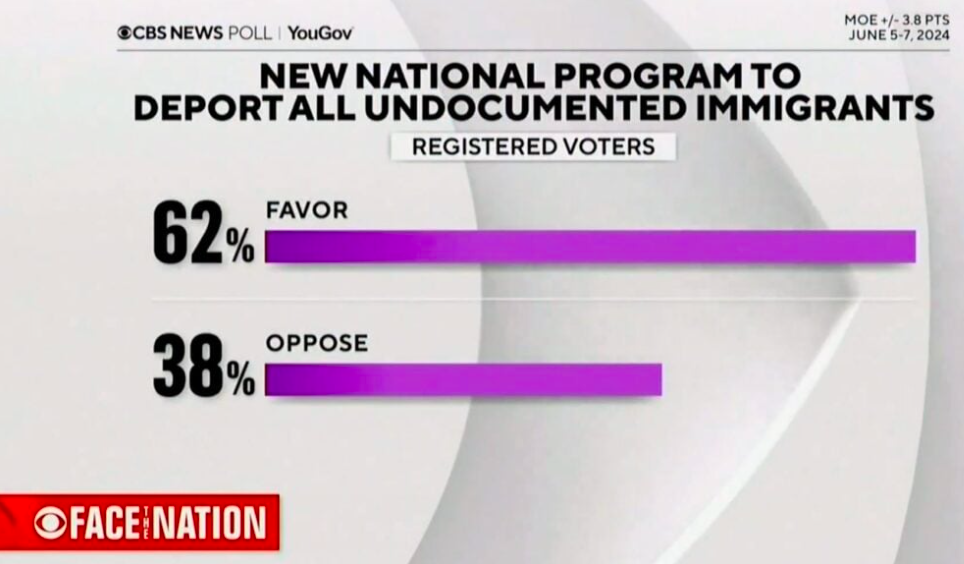In a recent national poll conducted by CBS News and reported by The Gateway Pundit, 62 percent of Americans, including a notable segment of Democrats, expressed support for a national program to deport all illegal aliens.
This significant majority indicates a shift in public opinion towards more stringent immigration policies, reflecting growing concerns over border security and the impacts of illegal immigration on the United States.

